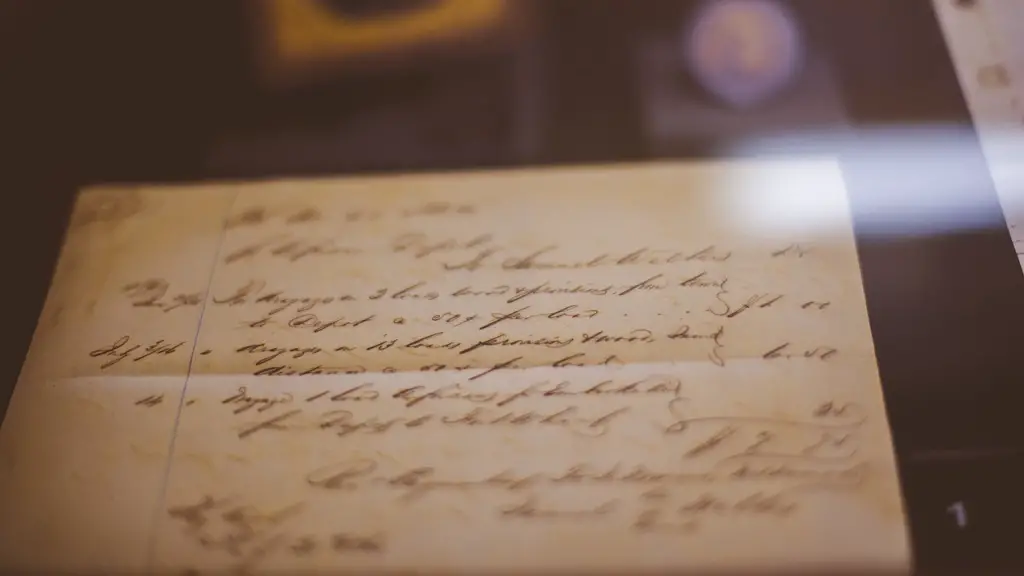The term ‘Metaphysical Poetry’ was coined by literary critic Samuel Johnson in 1779. The term refers to a style of poetry which combines philosophical ideas, intense emotion, and complex imagery. The concept was already present in the works of some earlier poets, such as John Donne, who is widely regarded as the father of Metaphysical Poetry.
Metaphysical Poetry typically uses elaborate imagery and intellectual thought to convey difficult ideas and emotions. This style of poetry rejects the simple, straightforward depictions of nature and instead focuses on exploring humanity’s inner spiritual and psychological life. Many of the Metaphysical poets employed techniques such as paradoxes, extended metaphors, and images which were intended to shock the reader into a deeper understanding of the poem’s meaning.
Tim Fulford, a professor of English literature, argued that metaphysical poetry is rooted in the late-medieval tradition of religious devotion and lyric. He suggested that there were two distinct strands of metaphysical poetry: one which draws upon Christian beliefs and another which blends Renaissance philosophical ideas with contemporary religious and moral discourses.
Describing metaphysical poetry is difficult due to the complexity of its message, meaning, and symbolism. Scholar Ella Harris writes that “Metaphysical poetry rejects strict forms and rigid genres, as well as the conventional narrative conventions of much poetry”. Metaphysical poetry is characterized by its unusual and often playful use of language and imagery.
Metaphysical Poetry seeks to challenge its readers’ preconceived notions of the world and their relationship with the divine. It often draws upon principles such as Platonic Idealism and Hermetic Correspondences in order to investigate the true nature of reality and humanity’s place within it.
Metaphysical Poetry is a unique, yet widely admired, style of writing that has been studied and discussed for centuries. The term ‘Metaphysical Poetry’ was first used by Johnson in his essay for the Lives of the Poets that was published in 1779. Since then, this term has been used to refer to a wide range of poets and their works, from the Elizabethans such as Donne, Marvell, and Herbert, through to the Romantics such as Blake and Wordsworth.
The Influence of Metaphysical Poetry
Metaphysical poetry not only influenced the development of other poetic forms, but it also had an effect on literature more generally. For instance, many of the classical authors such as Sophocles, Plato, and Cicero have been claimed to have been heavily shaped by metaphysical ideas and techniques.
This influence impacted the wider culture at large as well. For example, in his novel The Faerie Queene, Edmund Spenser drew heavily upon metaphysical ideas and techniques. Similarly, the writings of the English Metaphysical Poets also served to further the development of philosophical theories in the 17th century, such as Cartesian Dualism.
The concept of metaphysical poetry has been adapted to other art forms such as film and digital media. For instance, many sci-fi and horror movies incorporate aspects of metaphysical themes and imagery. Similarly, the use of surrealist imagery and techniques in electronic music has been described as being ‘metaphysically inspired’.
Popularity of Metaphysical Poetry
Metaphysical poetry is still popular today. In the modern era, literary critics have praised the works of poets such as John Updike and T.S. Eliot for their exploration of spiritual, philosophical and psychological themes, which can be seen as a continuation of the Metaphysical tradition.
It is difficult to determine why Metaphysical poetry remains popular after centuries of changing tastes. It could be because of its unique blend of spiritual and philosophical ideas, or because its use of unusual language and imagery can conjure strong emotions in its readers. Whatever the reason, it is clear that the legacy of Metaphysical Poetry remains alive and well in the 21st Century.
Revival of Metaphysical Poetry
The revival of metaphysical poetry has been evident in recent years with the emergence of a new generation of poets. These contemporary metaphysical poets are exploring themes such as death, love, and the universe in a similar manner to the original metaphysical poets.
Many of these modern metaphysical poets are also pushing the boundaries by incorporating modern themes such as technology, identity, and climate change into their works. This has opened new avenues of exploration and interpretation for readers, as these contemporary authors are grappling with the complexities of the modern world through the medium of metaphysical poetry.
These contemporary poets pose interesting questions to their readers, often blurring the boundaries between the spiritual and the secular. This can be seen as a reflection of how much the world has changed since the time of the original metaphysical poets. It is clear that Metaphysical Poetry is continuing to evolve and become increasingly popular in the modern era.
The Legacy of Metaphysical Poetry
Today, the legacy of Metaphysical Poetry is evident in various forms throughout art and culture. The challenge of exploring the deeper meaning of life continues to fascinate writers, musicians, filmmakers, and many others. It is clear that the influence of metaphysical ideas and techniques will continue to be felt in the years to come.
Metaphysical Poetry has offered a unique perspective on life and meaning, and its legacy will remain as long as people continue to be interested in exploring life’s mysteries. These sentiments were perhaps best captured by poet John Donne: “No man is an island, entire of itself; every man is a piece of the continent”.
Conclusion
The term ‘Metaphysical Poetry’ was first coined by Samuel Johnson in 1779, and it has since become an influential and long-lasting poetic style. Its unique blend of spiritual and philosophical ideas, paired with its use of unconventional language and imagery, has made it a source of fascination for generations of readers. Today, the legacy of Metaphysical Poetry is evident in various forms of art and culture, and its influence is likely to continue for many years to come.




